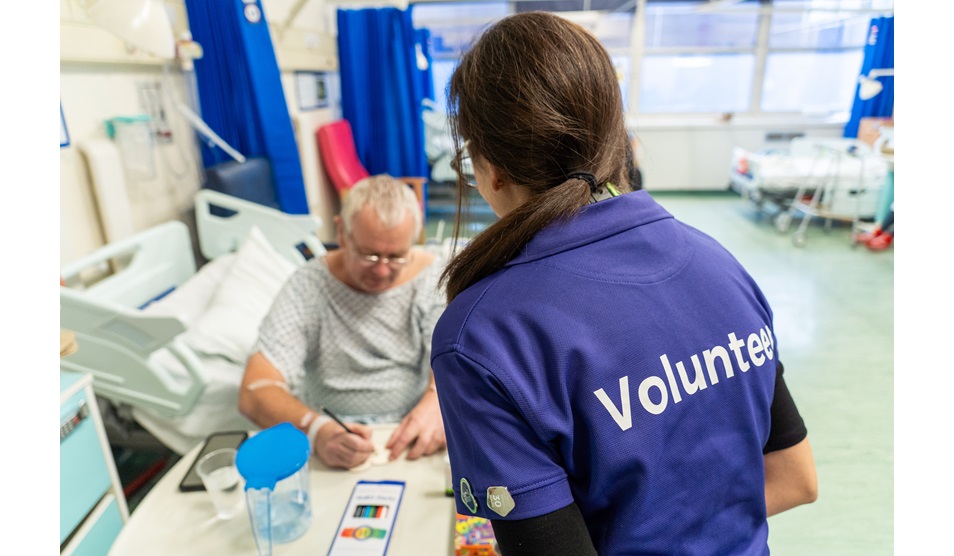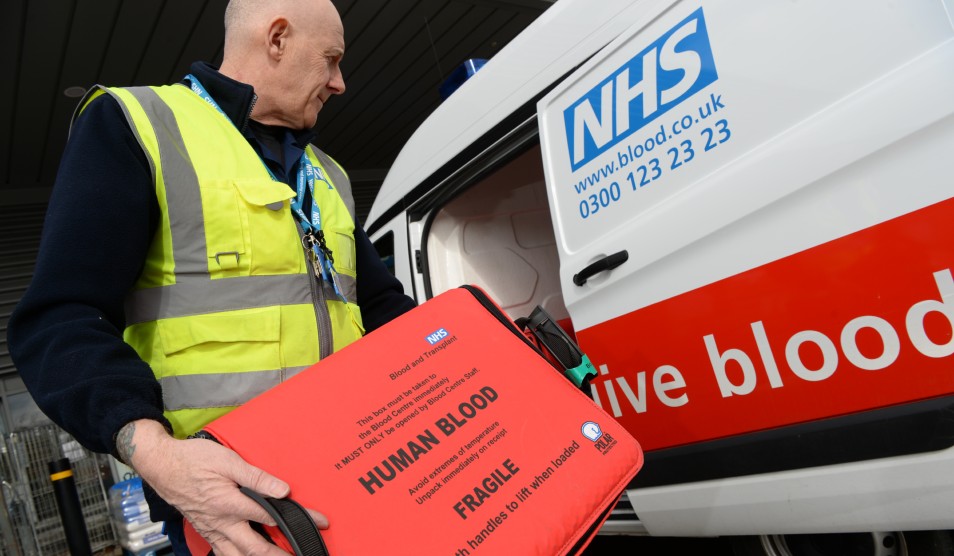First participants receive Imperial Covid-19 vaccine
Clinical researchers have administered a new coronavirus vaccine to the first participants in a trial which will evaluate whether it is well-tolerated and produces an effective immune response.
The clinical team, who have delivered small doses of the vaccine to the first participants, are monitoring them closely and report that they are in good health, with no safety concerns.
The study, led by Imperial College London and involving staff from Imperial College Healthcare NHS Trust, is the first time the vaccine has been trialled in humans. Over the coming weeks, 300 healthy participants will receive two doses of the vaccine.
It will be the first test of a new self-amplifying RNA technology, which has the potential to revolutionise vaccine development and enable scientists to respond more quickly to emerging diseases.
Many traditional vaccines are based on a weakened or modified form of virus but the Imperial vaccine uses synthetic strands of genetic code (called RNA), based on the virus’s genetic material. Once injected into muscle, the RNA self amplifies – generating copies of itself – and instructs the body’s own cells to make copies of a spike protein found on the outside of the virus. This should train the immune system to respond to the coronavirus so the body can easily recognise it and defend itself against COVID-19 in future.
Dr Katrina Pollock, senior clinical research fellow in vaccinology and Chief Investigator of the study, said: "We have reached a significant milestone in this ground-breaking study with the first dose of a self-amplifying RNA vaccine delivered safely. We are now poised to test the vaccine in the dose evaluation phase before moving forward to evaluating it in larger numbers.
"It is a privilege to be part of this important work and the team are extremely grateful for the enthusiasm and support from our volunteers, without whom clinical research would not be possible. It is a tribute to science and the widespread desire to assist the COVID-19 vaccine programme that thousands are signing up to be a part of these vaccine studies. I look forward to providing more updates on our progress as we gather more data."
In the initial part of the study, the team will look to assess safety and find the optimal dose of the vaccine in 15 healthy participants aged 18 to 45. The first participant received a very low dose of the vaccine, with increasingly higher doses for subsequent volunteers.
Following this initial small group, the team will then recruit further healthy volunteers (aged 18-75) to trial the optimal dose of vaccine in a larger population. The combined Phase I/II studies will aim to deliver the vaccine to a total of 300 people at sites across the UK.
All volunteers will receive two doses of the vaccine over two visits – an initial dose and then a second boosting dose four weeks later. The researchers expect to publish findings once the safety data are available and are hopeful a viable vaccine could be available as early as Spring 2021.
The vaccine has undergone rigorous pre-clinical safety tests and in animal studies it has been shown to be safe and produced encouraging signs of an effective immune response. If the vaccine is well-tolerated and shows a promising immune response in humans, then larger Phase III trials would be planned to begin later in the year with around 6000 healthy volunteers to test its effectiveness.
Ultimately, the researchers hope that if clinical trials are successful, the vaccine could provide protection for the most vulnerable against COVID-19 both in the UK and around the world. In the long-term, this would help with the continued easing of restrictions and help people return to normal life.
Dr Bob Klaber, director of strategy, research and innovation at the Trust said: “Clinical research is vital in the fight against coronavirus. The speed with which academics and clinicians have come together to share their expertise and experience of the virus and to get to the point of human trials for a promising vaccine candidate has been remarkable. With the support of the volunteers who have put themselves forward to be part of the trial we hope that this research will enable us to change the way we respond as a country and international community to the huge challenges this virus is presenting us with."
Imperial’s vaccine candidate is being developed and trialled thanks to more than £41 million in funding from the UK government and a further £5m in philanthropic donations.
Business Secretary Alok Sharma MP said: “I am incredibly proud the vaccine being developed by Imperial College London is one of the world’s front-runners. We are fully backing its research with over £40 million government funding, as part of our wider vaccines development programme. The fast progress of Imperial’s vaccine is testament to the ingenuity and tenacity of Britain’s researchers. If these trials are successful a vaccine will not only help us tackle coronavirus but also emerging diseases now and into the future."
The research has been supported by the UK Medical Research Council, UK Research and Innovation, The Department of Health and Social Care, the Department for Business, Energy and Industrial Strategy, the National Institute for Health Research, along with a number of philanthropic donations.
The Imperial vaccine trial is progressing with approval from the Medicine and Healthcare products Regulatory Agency (MHRA).
Further information is available on the Imperial COVID-19 Vaccine Trial website.
AHSC seminar on Covid-19 vaccine and treatments
If you missed the first in the series of online COVID-19 seminars by Imperial College Academic Health Science Centre (AHSC), you can catch up on YouTube. Watch Professor Robin Shattock from the Department of Infectious Diseases at Imperial College London, talk about the innovative, self-amplifying RNA vaccine his team has developed – which went into trials in humans for the first time last week. Watch Professor Anthony Gordon, consultant in intensive care medicine and chair in anaesthesia at the College, present on the trial he is leading to investigate whether convalescent plasma transfusions and other treatments can improve the speed of recovery and chances of survival for patients with COVID-19.





